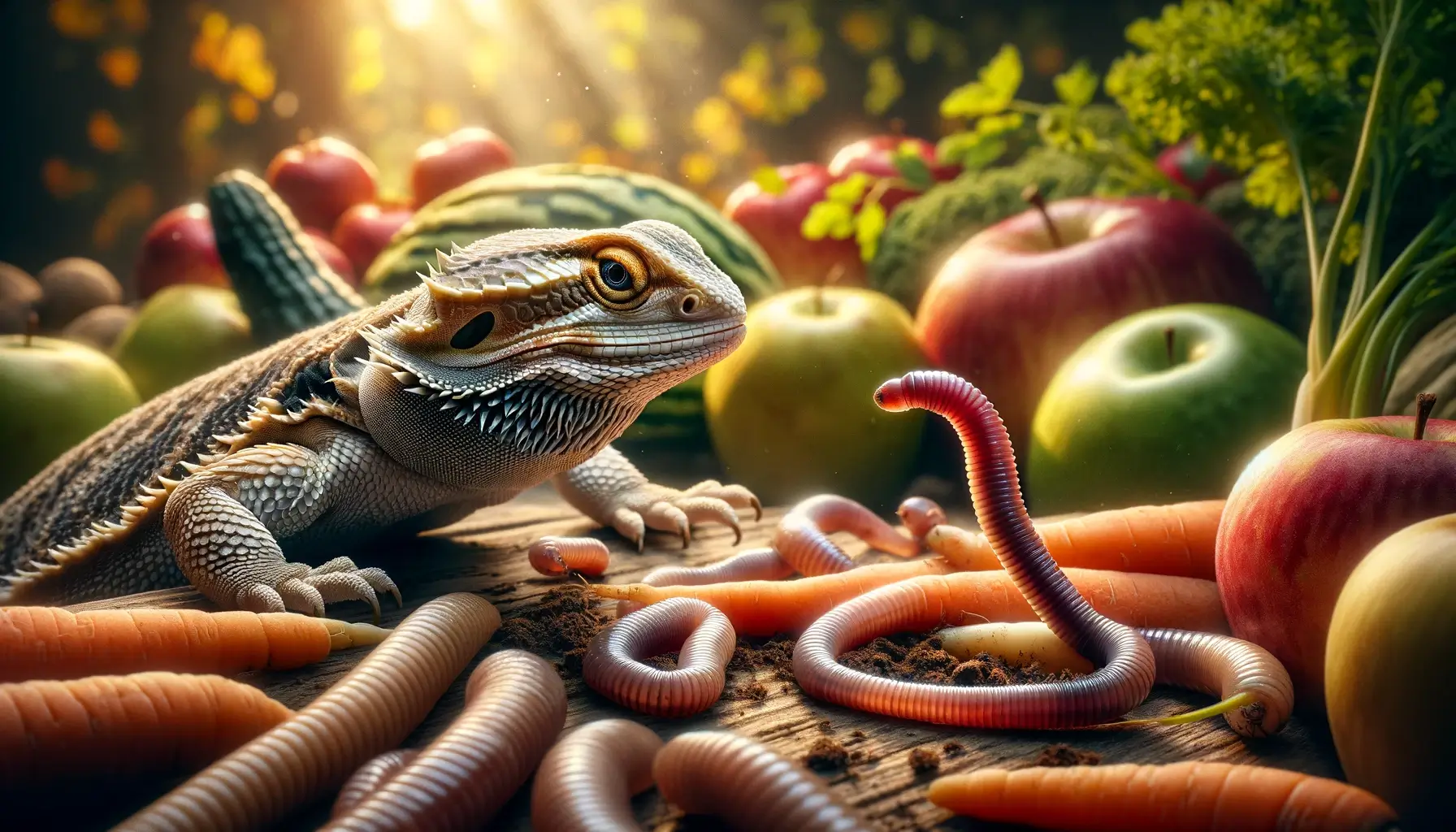Is it really okay for your bearded dragon to snack on earthworms? While you might think it’s a no-brainer thanks to their common reptilian diet, the truth might surprise you. Understanding the nutritional value, risks, and preparation of these wriggly creatures is crucial before adding them to your pet’s menu. But don’t worry; we’re here to guide you through this intricate feeding journey. Stay with us as we unravel the facts and debunk the myths about the role of earthworms in your bearded dragon’s diet.
Bearded Dragon’s Diet
Understanding your bearded dragon’s diet directly impacts their health and longevity. Bearded dragons are omnivores, requiring a mix of plant and animal matter. Now, can bearded dragons eat earthworms? The answer is yes but with caution.
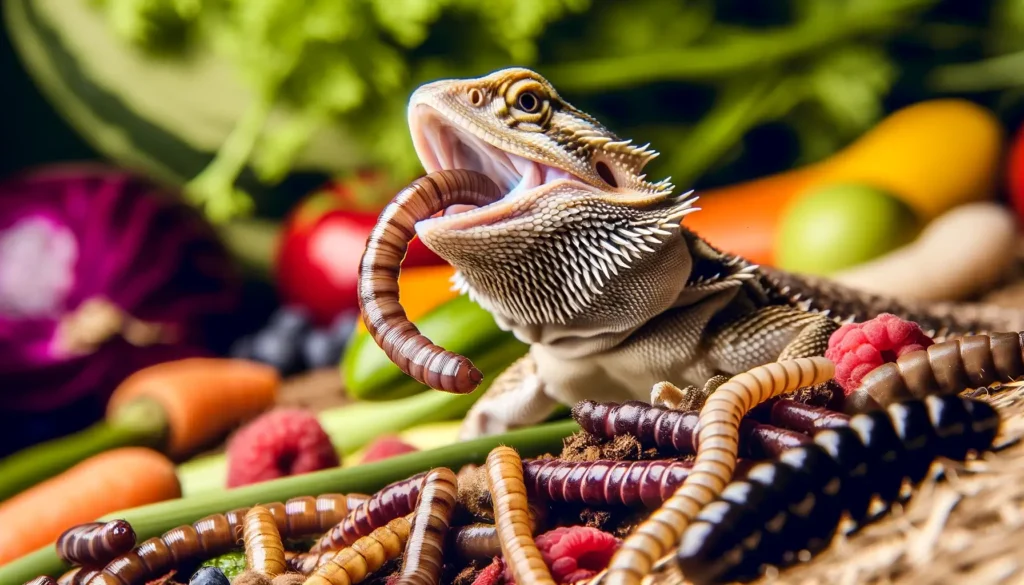
Earthworms and other worms like mealworms can be part of a bearded dragon’s diet. However, it’s vital to understand what worms can bearded dragons eat and when. Worms for bearded dragons should never be the mainstay of their diet but rather a supplement. Mealworms for bearded dragons, for instance, are a common treat, but they should be given sparingly due to their high-fat content.
As a rule of thumb, a bearded dragon’s diet should be 75% plant-based and 25% animal-based. This ratio ensures they get the necessary nutrients, vitamins, and minerals. So, while earthworms may be tempting, keep them as occasional treats. Your bearded dragon’s health and longevity are worth more than an easy meal. Remember, balance and diversity are key to a healthy diet for your bearded dragon.
The Role of Earthworms in Nutrition
Despite their role as an occasional treat in a bearded dragon’s diet, earthworms pack a nutritional punch that can benefit your pet in several ways. The question, “Can bearded dragons eat earthworms?” is often asked, and the answer is a resounding “yes!” But why are earthworms good for bearded dragons?

- Protein: Earthworms are a fantastic source of protein, which is essential for the growth and repair of your bearded dragon’s tissues.
- Minerals: Earthworms are rich in minerals such as calcium and phosphorus. These minerals help maintain your pet’s bone health and metabolic functions.
- Vitamins: Earthworms contain important vitamins, including Vitamin E and B12, which help support your dragon’s overall health.
However, it’s not just about whether a bearded dragon can eat earthworms. You must also consider how often and in what quantities. Earthworms for bearded dragons should be used as an occasional supplement to their diet, not a mainstay. This is due to earthworm nutrition facts that show high levels of certain nutrients that can be harmful if consumed in excess. This approach allows your pet to enjoy the benefits without the risks, allowing them to explore their dietary preferences within a healthy framework.
Risks of Feeding Earthworms to Bearded Dragons
While earthworms pack a nutritional punch for bearded dragons, they also come with potential risks that you need to consider. Yes, your bearded dragon can eat earthworms, but it’s crucial to understand the potential implications.
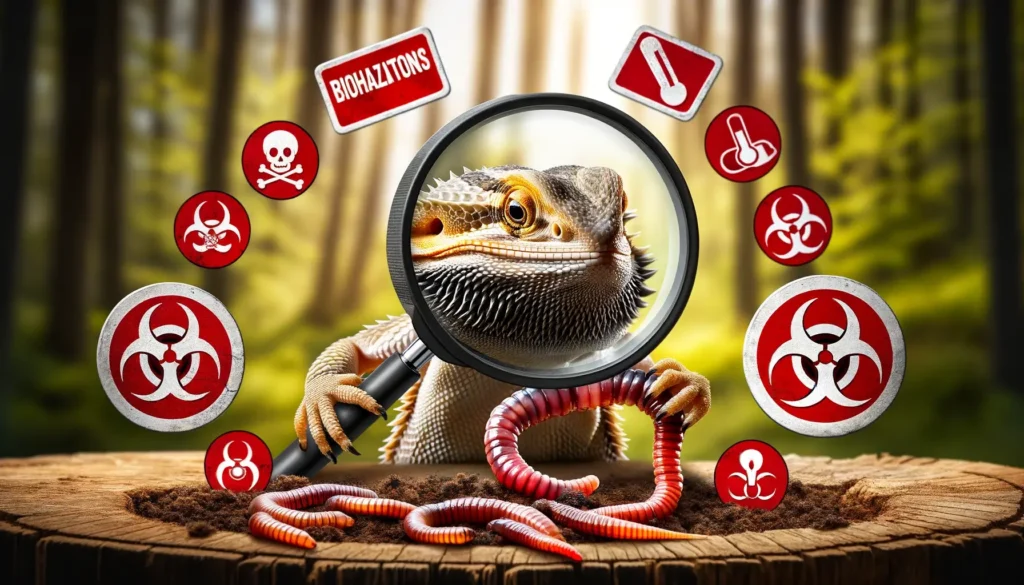
One of the primary risks of feeding earthworms to bearded dragons is their high-fat content. Regularly feeding earthworms to your bearded dragon can lead to obesity. You might be thinking, can my bearded dragon eat earthworms occasionally, then? The answer is yes, but it’s best to offer them sparingly.
Another risk is the possibility of parasites. Earthworms can carry parasites, which can infect your bearded dragon if ingested. This is a risk you must take seriously, as it can lead to serious health problems.
Lastly, earthworms are not native to the natural habitat of bearded dragons. Your pet’s digestive system might not be equipped to handle them. Furthermore, earthworms can be tough to chew, leading to choking hazards.
Safe Worm Varieties for Bearded Dragons
Navigating the world of worm varieties for your bearded dragon’s diet can seem daunting, but several types are safe and nutritionally beneficial for your scaly friend. When considering the question, “Can bearded dragons eat earthworms?” the short answer is yes, but they’re not the only option.
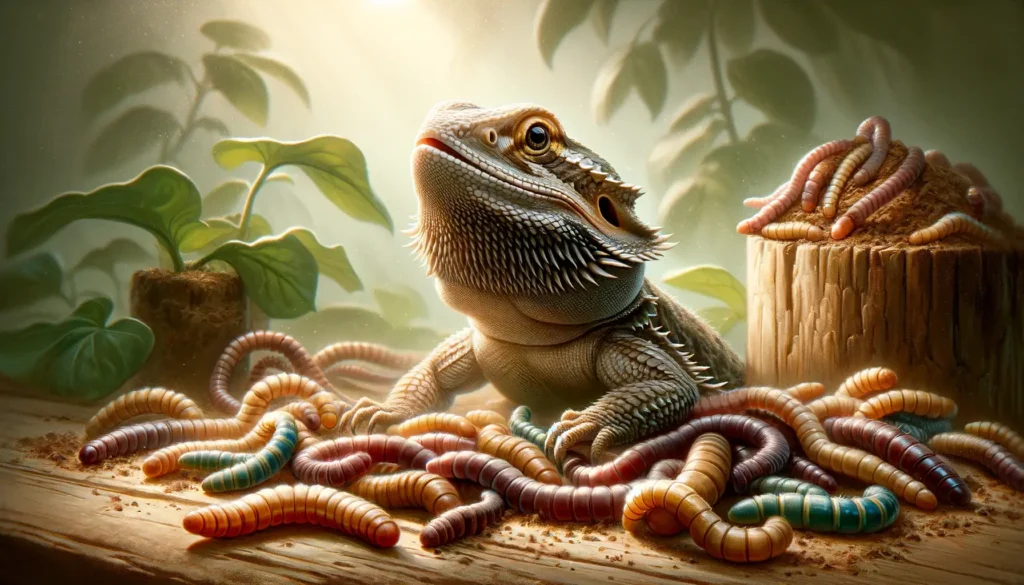
Mealworms: One of the most common worms for bearded dragons, mealworms are rich in protein and readily available. They’re easy to digest and can be fed to your pet live or dried.
Superworms: These worms offer a higher fat content, making them a great choice for underweight dragons or those needing an energy boost.
Waxworms: Known as the ‘candy’ of the worm world, these should be fed sparingly due to their high fat content.
Frequency of Feeding Worms
After determining the types of worms suitable for your bearded dragon, it’s equally important to understand how often these nutritious critters should be incorporated into their diet. The frequency of feeding worms to your bearded dragon is as crucial to its health as the type of worm you choose.
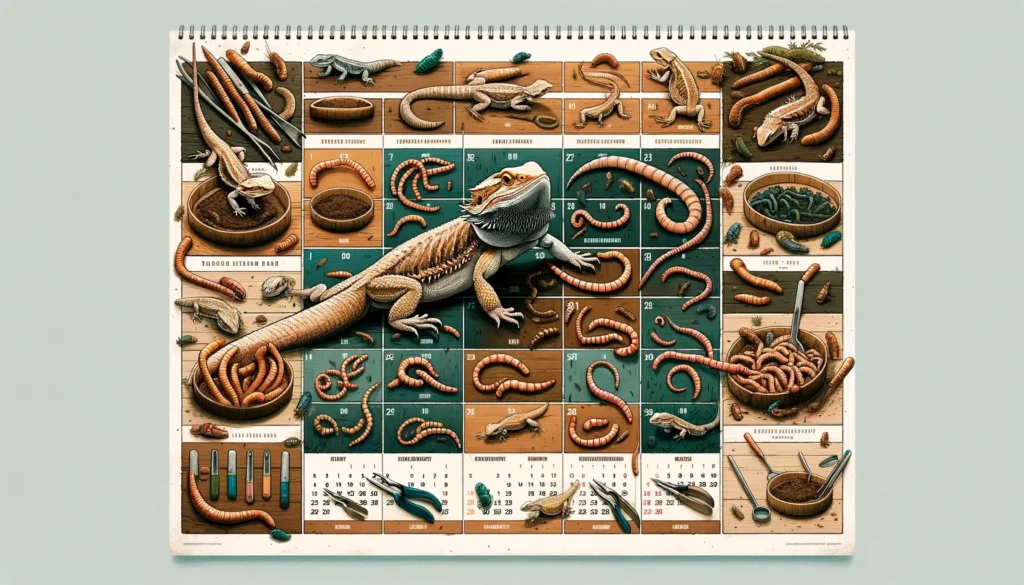
While worms are a beneficial part of the diet, they shouldn’t be overfed. Even though you may wonder, “How many worms should I feed my bearded dragon,” there’s no one-size-fits-all answer. The quantity largely depends on your dragon’s age and size. Young dragons need more protein, so they require more worms than adults.
But can you overfeed a bearded dragon with worms? Yes, you can. Overfeeding can lead to obesity and other health issues. It’s best to offer worms to feed bearded dragons as a part of a balanced diet, not the main meal.
A general rule of thumb is to feed your dragon as many worms as they can eat in 15 minutes every other day. This will ensure they’re getting the nutrients they need without overdoing it. Remember, the frequency of feeding worms is pivotal for your dragon’s well-being.
Preparing Worms for Your Bearded Dragon
So, how do you prepare worms for your bearded dragon’s meal? The process is straightforward, but it’s crucial to get it right to ensure your pet’s health and well-being.
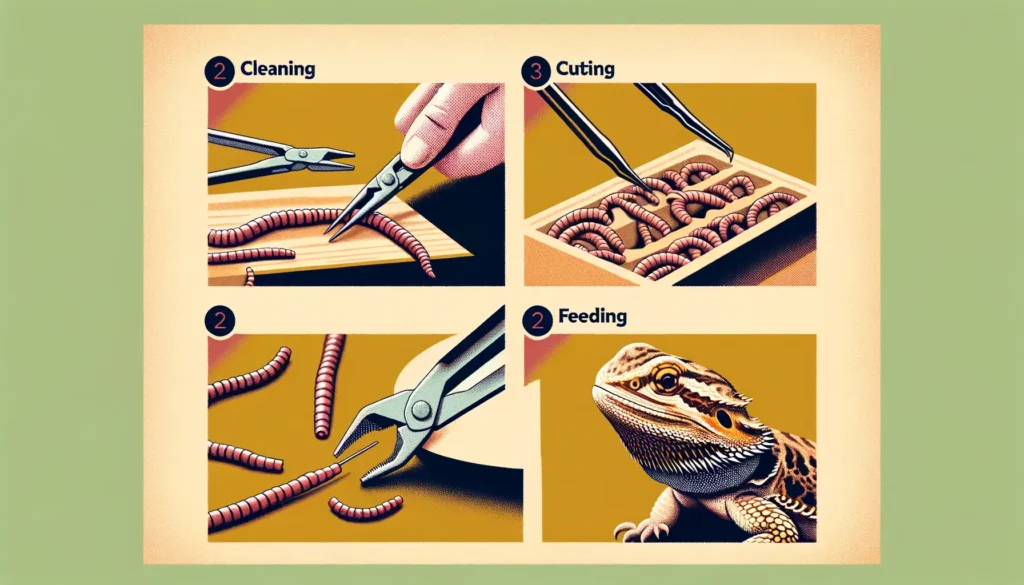
Choose the right worms: Not everyone is equal. The best live worms for bearded dragons are mealworms, superworms, and earthworms. These worms bearded dragons can eat are rich in protein and fats, making them a nutritious meal.
Prepare the worms: If you’re sourcing worms from outside, ensuring they’re safe is crucial. Can bearded dragons eat worms from outside? Yes, but only if they’re free from pesticides, fertilizers, and other harmful substances. Rinse them thoroughly under cool water to remove any dirt or contaminants.
Serve the worms: Place the prepared worms in a shallow dish. Bearded dragons prefer live food, so make sure the worms are wriggling. Don’t leave uneaten worms in the enclosure, as they can stress your pet.
Alternatives to Earthworms in Diet
While earthworms are an excellent source of nutrition for bearded dragons, many other food options can diversify and enrich your pet’s diet. Can bearded dragons eat nightcrawlers or wax worms? The answer is yes. Nightcrawlers are high in protein and can be a part of your dragon’s diet. Although tasty for your pet, wax worms should be given sparingly due to their high fat content.
Bearded dragon mealworms are another viable option. They’re small, easy to digest, and packed with nutrients, making them one of the best worms for bearded dragons. They offer a balanced diet, providing your pet with the necessary proteins and fats for growth and development.
Nonetheless, it’s crucial to know that not all worms are safe. Can bearded dragons eat red wigglers? They can, but it’s not recommended. Red wigglers secrete a bitter substance that your pet might find unpleasant. In conclusion, while earthworms are a great dietary staple, it’s beneficial to include a variety of worms in your pet’s diet for optimal health.

